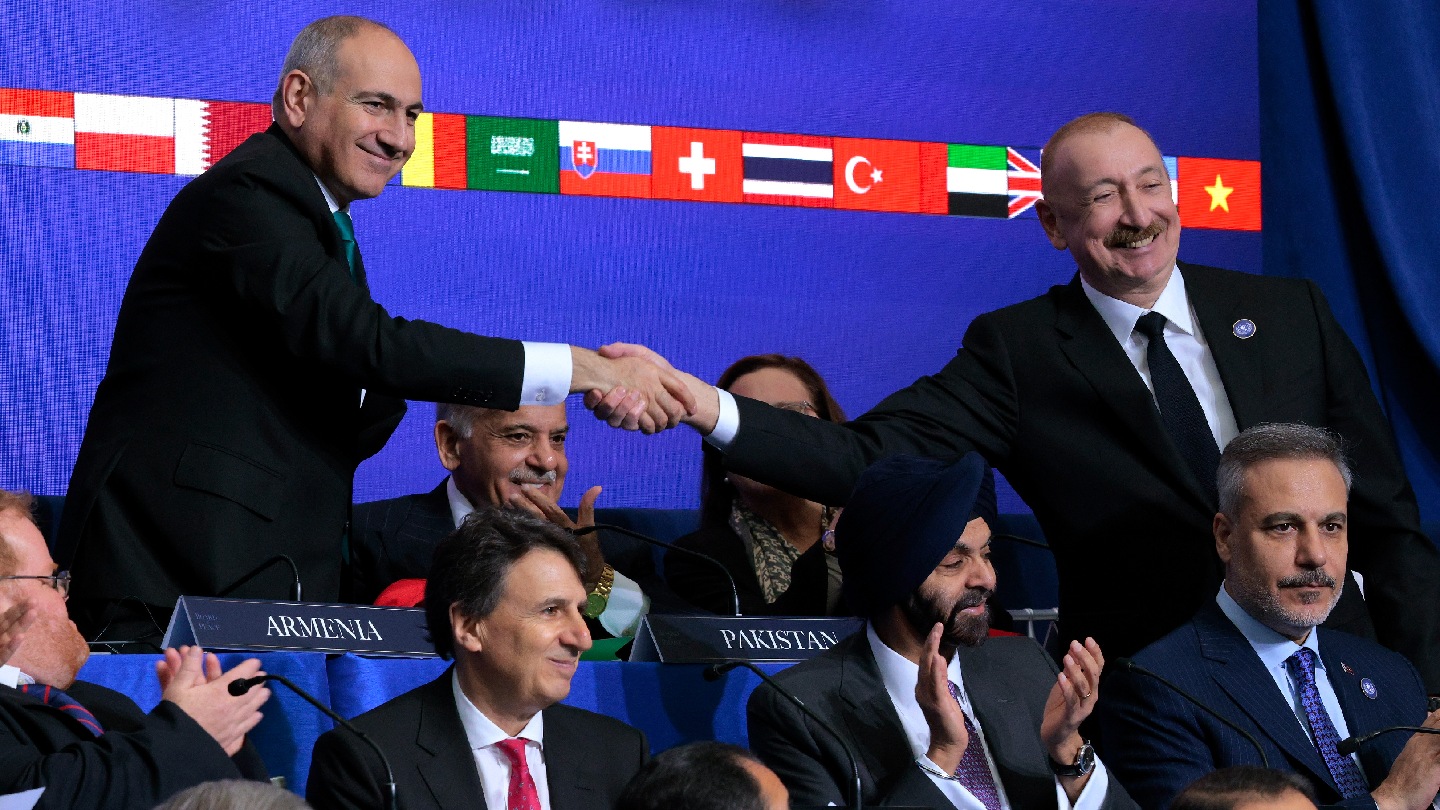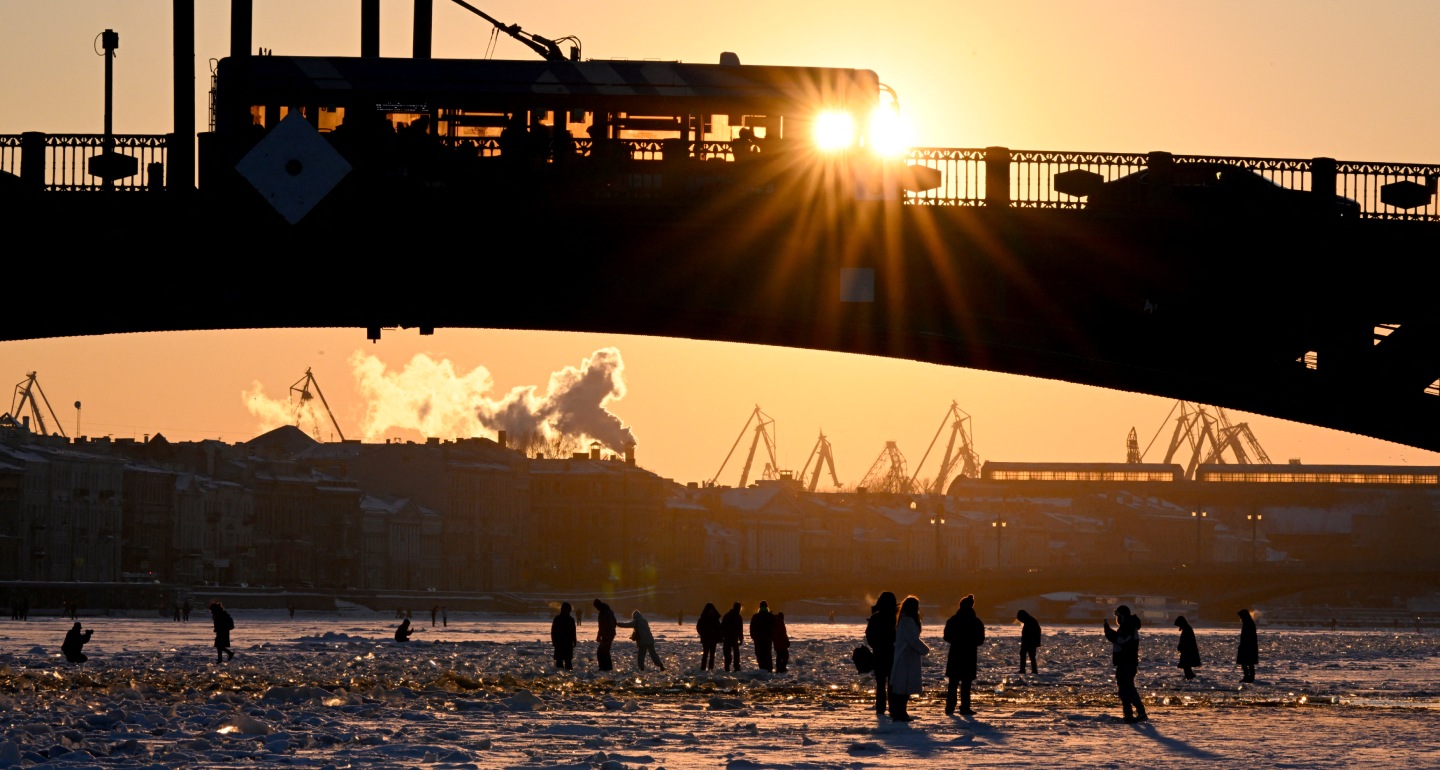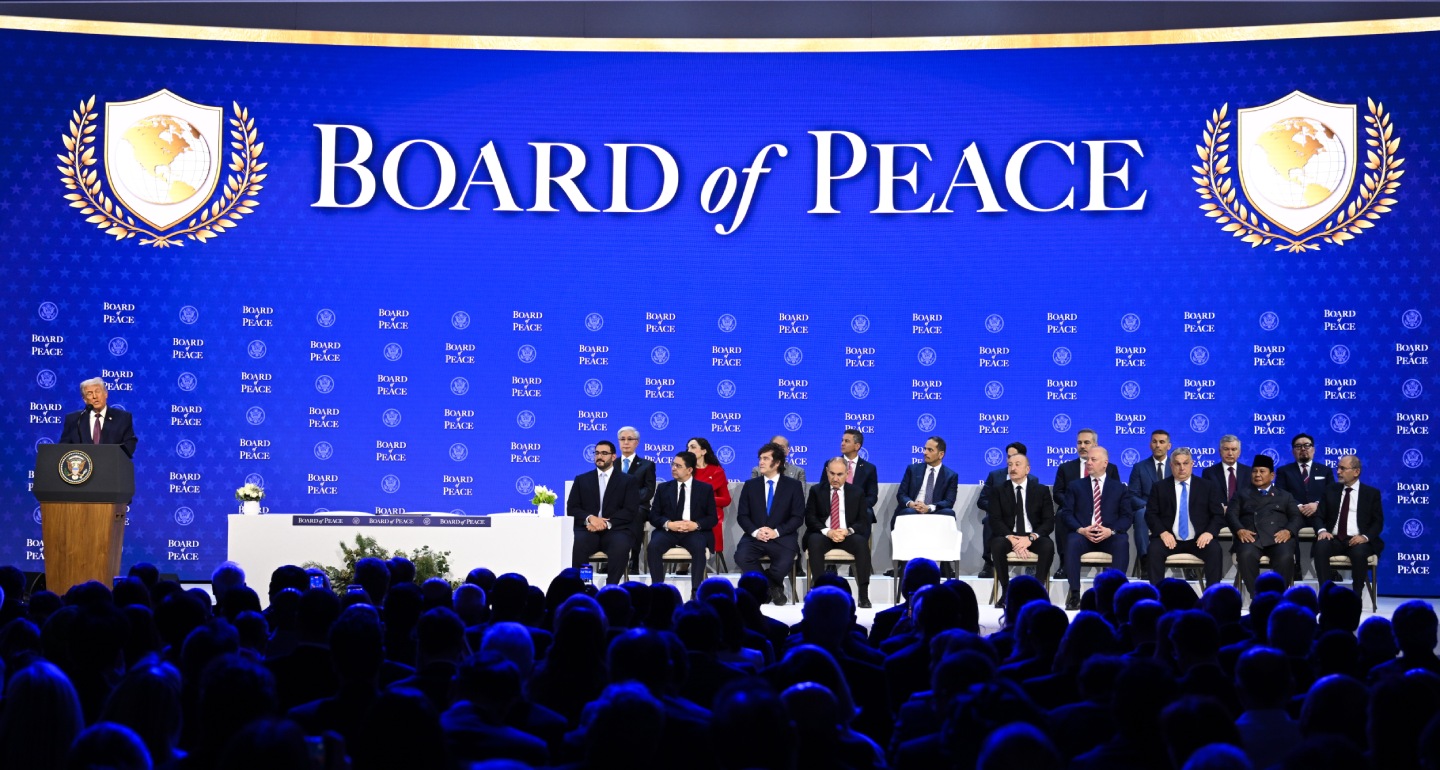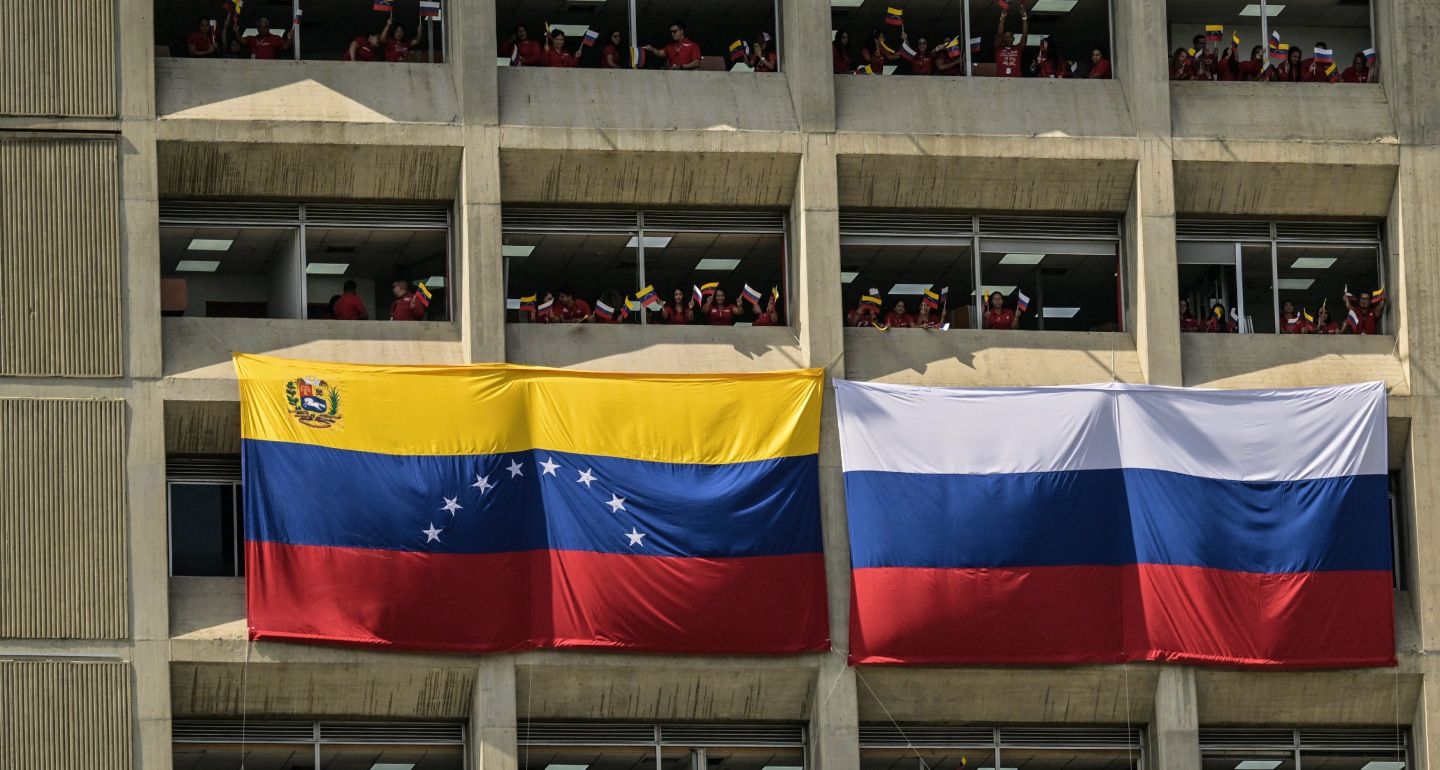Russian assets abroad were frozen almost as soon as the country launched its invasion of Ukraine in 2022. The idea of seizing those assets and transferring them to Ukraine has been discussed in Western capitals for more than three years, but no significant action has been taken because the assets are protected by sovereign immunity and the West is officially not at war with Russia. Now, with a new administration in the United States and the war of attrition in Ukraine dragging on, European leaders find themselves between a rock—the need to show unwavering support for Ukraine—and a hard place: growing public discontent at having to fund this war from European pockets, when there are billions of euros in Russian money sitting in Western bank accounts.
What would the procedure be for embarking on such a complex legal matter? What would setting such a precedent mean for the EU, the euro, and the dollar, and for the countries looking to deposit their reserves in the EU? And does Europe have a plan B if internal divisions can’t be overcome?
The transcript was automatically generated and not edited prior to publication.
Alexander Gabuev. Welcome to the Carnegie Politika podcast. I'm Alexander Gabuev, director of Carnegie Russia Eurasia Center in Berlin. Today's episode is dedicated to Russian frozen assets and policy discussions in the West to seize this money and transfer it to Ukraine. My guest is Robert Zoellick, a former president of the World Bank and one of the earliest public advocates of seizing the Russian assets. When leaders of the European Union meet for their annual summit next week, the key topic on the agenda will be the fate of the assets that belong to the Russian Central Bank and have been immobilized immediately after the full-scale invasion of Ukraine in February 2022. This money, around 200 billion euros in total, mostly sits on accounts in Belgium that belong to Euroclear, the major European securities depository. Discussion on the future of these frozen assets has been ongoing in the West ever since. But this year, these policy debates have intensified. First, the US under Donald Trump stopped providing any financial assistance to Ukraine. America is only selling its weapons to Kyiv through European partners and sharing intelligence. Then, fatigue among European populations who don't want to finance the fifth year of this costly war is also more palpable in many EU member states. And finally, Ukraine has an expanding hole in its state finances and needs about 120 billion US dollars for the next year. If this issue is not addressed, the whole self-defense effort of Ukraine may be jeopardized. Bob Zoellick has served in various senior roles in the US government, was president of the World Bank from 2007 to 2012, and is one of the leading global voices on the interconnection between geopolitics, economics, and global finance. And I need to mention, he's also a member of the Carnegie Endowment's Board of Trustees. Since [the] beginning of the war four years ago, Bob was one of the most consecutive and globally visible advocates of seizing the Russian assets. I'm very glad to have you on the podcast, Bob. Welcome.
Robert Zoellick. Glad to be with you, Sasha.
Gabuev. Let's set the stage by talking about the strategic importance of the issue of the Russian frozen assets. You've been saying since 2022, the year that Putin authorized his full-scale invasion of Ukraine, that sizing Russian assets in the West is not only a matter of financial sustainability for Kyiv, but also a matter of strategy. Why so?
Zoellick. Well, it was clear to me from the start that this would be a war of attrition. It would go on for a long time. And in wars of attrition, the economic support is as important as the military support because you have to sustain the effort, not only militarily, but in terms of the budget, your energy, just to keep your economy going. And as you would know better than I do, I, having met Putin many times over the years, I believe for him, this was a war about Russian history and his place in Russian history. And therefore, he was unlikely to relent. So it seemed to me from the start that the frozen assets that the United States, Europe, others around the world promptly took action to prevent them returning to Russia, could be used as as a tool, as an instrument in dealing with the conflict. Just a slight minor point. You use the word seize. Transfer is the probably better legal word, but it depends on the nature of the legal effort. Now, in addition to the pure economic need, there's also psychological aspects. For Ukraine, which is persisting and struggling with great courage, I think this is a boost in the arm to know that they'll have the economic means to sustain. And the reverse is true for Putin and Russia. It shows the willingness of Ukraine and its supporters around the world to sustain it. So it deals with all the aspects of a long conflict.
Gabuev. I think that you and some of your colleagues - Larry Summers, many prominent lawyers - have been making these arguments for nearly four years now, and you were definitely among the first we've had a chance to discuss this over the course of the war. And we only see some policy movement in that direction over the last 18 months or so. First, the European Union decided to use the proceeds of the Russian frozen assets to issue a 50 billion euros worth loan to Ukraine. And now the European Commission and some key member states, most notably Germany, are ready to touch the body of the assets. What has created this recent sense of urgency in your view?
Zoellick. Well, it's interesting, Sasha. I always believed that this moment would come because eventually Ukraine supporters would weary of appropriating billions and billions of dollars militarily and economically. Also there's a certain irony in that having worked with policy issues over the years, it's rare that you find one that is good policy, good politics and good ethically. And this is one of those issues. But it's a newer idea, and governments around the world are often reluctant to take a new step. There are both domestic and international law issues. So, one question is whether there's a domestic authority and then whether it's appropriate under international law. Now, in the case of these assets, as you mentioned, the large bulk were held in Euroclear, about an estimated 185 billion euros, so over billion dollars. There's an estimated 300 plus billion dollars around the world. Europe was going to be the major player. On the US side, I and Philip Zelikow, a colleague who's organized a group of legal actors on this, believe that the US had authority under the IEEPA, the Emergency Economic Powers Act. However, just to ensure it, Congress sort of enacted to reaffirm that authority. It was quite telling. On the political point, there are very few things in the U.S. Congress that can be supported by both Republicans and Democrats these days. And this is one that had sort of overwhelming support. On the European side, I think what happened was, and not surprisingly, lawyers and central bankers' first inclination is to say no. And politicians got locked into this. But there are good answers on both the legal and the financial side. And now Europe is facing reality. I think the key most recently was for Chancellor Merz of Germany to signal some willingness to move on this issue. And right now, Belgium is the main holdout.
Gabuev. You described the body of the assets as 300 billion US dollars worthwhile, about 200 billion sitting mostly in Belgium, in Euroclear. What's your estimate of how much it buys for Ukraine in terms of time?
Zoellick. Well, you used a number about the estimate of the economic support that Ukraine needs. I'm not in an expert position to guess. That number of sounds about right, maybe a little high. It depends if you use the economic support as well as the military support. But if you're talking about over $300 billion dollars, for sure, it helps you at least through a number of years. And yeah, that goes to the strategic point. I never believed that the sanctions on Russia would be certainly immediately effective. I felt that they would eventually wear down the Russian economy. I think we're seeing that. As you know from some of your colleagues, you now have basically a Keynesian war economy, but there's stress on inflation and labor. But I don't believe Putin is going to capitulate anytime soon. So this allows Ukraine to continue to maintain the effort. Maybe at some point, Putin decides to reach terms, but this will certainly signal that he can't crush Ukraine economically and that they have the means militarily to buy additional weapons.
Gabuev. Let me be the devil's advocate for a moment. You mentioned that there are various hurdles that popped up in European discussion, and I see them falling into two schools of thought or two groups of this argument. One is legal, the other is financial. The current policy debate in Europe, at least, revolves around legality of this transfer or expropriation, as some people would call it. I talk to many policymakers in various European countries, as I'm sure you do, and people in cabinet positions, including in countries who are not big fans of Russia historically, say we can't touch the body of the assets. That will be theft by definition of international law. And you can argue about that, but that's the matter of fact. So that's why we are opposed. And as you know, lawyers can argue any case multiple ways. What's your understanding of the legal framework that will allow to actually go after these assets?
Zoellick. So bear with me, I'll try to communicate this in a lay person's language. But picking up exactly on your point, my colleague, Philip Zelikow, who's now at Stanford and Hoover, had been the University of Virginia, wanted to try to address this issue. So he actually assembled a group of about 12 international lawyers. Given the importance of Europe in this, they're from France, the UK, Belgium, Netherlands, Japan, Australia, the US, Germany, including the head of the European International Law Society, major practitioners. What they stressed is a theory called countermeasures. And in a way, it goes back to kind of old legal notions of reprisals. If if one country takes an action, you can take reprisals against it. What's important is it's a state-to-state action. So you'll hear sometimes people talk about sovereign immunity. They are mixing up that concept. Sovereign immunity protects sovereigns against actions by private parties. This is not private parties. This is state-to-state. And the basic concept of countermeasures is that if one international actor injures the other, and there's demonstrable effects, the other party could take a countermeasure to equalize the damage that's done. That's the fundamental issue that's at question here. You mentioned other international law examples. I worked for Secretary James Baker from 85 to 93, and actually the countermeasures principle was used after the Iraqi invasion of Kuwait and it was used to use Iraqi assets to go to about 10 different parties, not just Kuwait, but I think Israel and Iran got some. One slight difference, that was based on a UN Security Council resolution. This one does not have a UN Security Council [resolution] because UN Security Council is obviously immobilized. One of the things that, frankly, I like about this is that some practitioners of international law seem to feel it should only be used as an ineffectual protest of morality. This is showing how international law can be used effectively. Because what this suggests is that if you have international reserves around the world, it's not a good thing to invade your neighbor. Another issue that comes up would some people say, well, will Russia challenge us? Well, recall, if Russia brings some action in, say, the International Court of Justice, then it opens itself up legally to the counter actions, which is why it hasn't taken that action against the frozen reserves. That's the countermeasures logic. Now, what you have going on in the European case, and your opening emphasized this, they didn't want to use that method. So they started out actually with some odd construction of Belgian European law to first take the tax, the interest, because all these bonds eventually, became due, so they're now cash on the Euroclear balance sheet. So they then decided, well, we could issue a bond that would be repaid by the interest. So they're moving slowly in the same direction, and but they're using sort of a different legal logic along the way. Ironically, Euroclear, which was worried about its legal vulnerability, has become a form of war profiteer in this because it's been making money on the taxation of the interest. So from my point of view, Euroclear should welcome the opportunity to get these assets off its books, which is now what the European Union is talking about doing. Now, what's going on right now is the Europeans kind of staring reality in the face have come up with another legal theory. And so their legal theory is that they would issue a debt to EuroClear with zero interest. In return, they take the assets off the books, and then they would then use those sums of money and make a loan to Ukraine, but make the loan in a form that it would only have to be paid back if Russia pays reparations. So you can see it's really the full circle of the whole countermeasures logic. Because of that contingency, it wouldn't have to be debt on Ukraine's books. And that's important in terms of Ukraine's overall borrowing power. So it's kind of a complicated mechanism. What's now holding it up is the Belgians at Euroclear say, well, we want additional guarantees. Under the complexities of the European system, the Europeans didn't want to do that through unanimity, as they do under sanctions, because they're afraid Hungary or somebody would hold them up. So they're trying to use the qualified majority voting and actions by individual countries. This hasn't yet been achieved, but you can see the momentum sort of now taking place. And what strikes me, going back to your initial question, is that it was rather obvious that if this was going to be a long war at some point, the citizens of Europe, the United States, Australia, Japan, others would say, well, why should we be paying our tax money if there's $300 billion dollars of Russian assets that nobody's using? So that's where I think the policy and the politics sort of come forward. But as you mentioned, there's also a financial issue that we may want to address.
Gabuev. Yes, thank you. That's pretty clear. I think that another important line of argument is the risk to [the] euro and US dollar. And it [is] definitely intertwined with the legal risk. And the theory is this, that major countries that hold parts of their reserves in US dollar denominated assets by treasuries or in euro, both as most big countries do, or countries in the Global South, the Saudis, the Indians, will see that the West is acting with double standards because nobody touched, reserved, or sanctioned the countries that invaded Iraq in 2003 without UN Security Council permission. So, very different from the first Gulf War. Nobody right now touches the reserves of Israel, despite Israel obviously is occupying parts of the territory of its neighbors in violation of some UN Security Council resolution. So, this school of thought says there is no way that these countries will be seeing that as implementation of international law or a norm that protects countries against aggressors. And this is why it's an arbitrary decision taken by the West that will be only applied against adversaries. And since this definition of adversaries is in flux, particularly with Donald Trump - you know, he is on the trade war with India, with many traditional partners - in the long run, these countries will seek ways to diversify away from US dollar denominated instruments, from euro denominated instruments, and gradually take their money out and put them into other instruments, be it gold or crypto. And that will drive down demand for European bonds and treasuries and undermine the public finances and the status of the global reserve currencies. Is there any merit to this argument in your view?
Zoellick. Well, your question really kind of integrates two arguments. One would go back to the legal use and history of countermeasures. And you'll find various international statements on this over the course of the past 20 or 30 years, which is a more limited use. You can't just use this in any situation. But some of the conflicts that you talked about were not invasions where you're trying to take over somebody else's country, which I think distinguishes the US sort of invasion of Iraq where it left versus the Russian case. Although I'm not trying to say that invasion was the right policy, I'm talking about in legal terms. But then you're also raising the financial issue. Of course, if there's anybody as small-C conservative as lawyers, it's central bankers. Central bankers don't want their financial system intruded on. But this is one reason why Larry Summers and I joined on this, because I, while I've been in foreign policy, as you mentioned, I've been an active in financial markets, head of the World Bank, and Larry is the Secretary of the Treasury. And here's what that issue comes down to. Countries don't hold reserves so that they can invade their neighbors. They hold reserves for reasons of macroeconomic stability. And then the question would be, does this raise the uncertainty about their willingness to hold dollars or euro? Well, one good test was that for two to three years, the frozen reserves didn't really have much effect at all on the dollar or euro. You've had some recent effects, but I think that's more related to Trump policies. You've seen some buying of gold, and some of this is historically the case that central banks used to hold higher percentages of gold in their reserves in the early 90s. That came down instead of coming back. There are limits to that because gold, you have to physically hold it somewhere and you don't get any interest or return. But nevertheless, at a time of inflation or uncertain international policies, central banks will will hold more gold. But in general as I mentioned you didn't see this happen with the dollar and euro over the first years. Now, this also presents a policy point, and people might differ on this. But frankly, I think it's a good message under international law if countries get the sense that if they invade and try to conquer their neighbor, they're not going to be able to use dollars or euro or other currencies. That's what we would call deterrence of a different type. So I think that's a good thing, as well as sort of demonstrating the effectiveness of international law. Now, as for the sort of greater particularity of this, one other issue that Madame Lagarde at European Central Bank was concerned was that allegedly the Chinese and the Saudis came in and said, well, if you take this step, we'll dump French bonds. This to me is a very sad case because as somebody who supported European integration, she's basically allowing other countries to blackmail European policy and make the European central bank a weakness as opposed to strength. The appropriate central banker's answer to that, which by the way was probably Mario Draghi would have given, would it would be if you try to do this, we'll just buy the bonds. And so then you have to make a choice of what else are you going hold? And this is where it gets connected to the larger financial system. Remember, the Chinese and others, for example, don't hold dollars out of friendship. They hold dollars because they make money from their trade surpluses. By making money, they get dollars. Then they have to decide, do they hold the dollars or do they sell the dollars? Well, if they sell the dollars, they're going to lower the value of the dollar compared to the renminbi which by the way will hurt their trade account. So you kind of see in some ways there's limits to the ability, even though they may hold dollars or euro for people to to dump these without disrupting their own trade posture. For all these reasons, I think the fears are overstated. It doesn't mean that there aren't some risks to this issue, but frankly, I think most countries around the world, when they have to decide to hold reserves, it's always a question of compared to what. The renminbi is about 2% of reserves. If you want to make sure, put your money in the Chinese capital account, which isn't open. The euro is about 20 percent. The dollar is about 57 percent. Gold will go up. You saw some movement to the Swiss franc and Australian and Canadian dollar. But by the way, at least a number of those are part of this effort. So if the G7 and friends act together, you minimize the risk of people trying to flee to another currency. So, again, you have to pit these against the notion of: do you believe it's important for Ukraine to survive? Is there is a legal basis? And do you believe you have a relatively strong financial position? And I think the answer to all those is yes.
Gabuev. I think that it's important to talk about the timeframes, because if Ukraine has a hole in its budget that's very urgent to fix, and if some of these risks, as we discussed, for the reasons that you outlined very compellingly, might materialize if other countries have other assets and currencies. So if the current trade posture leads to degradation of China-US trade, China gets less dollars because it virtually doesn't trade with the US much or as much as it used to be, and the same happens with Europe and it trades more with the Global South, then there might be a logic to kind of put more of your reserves in other currency, as cumbersome as it sounds. But it's probably years and years from now, whereas Ukraine needs money right now, and it's an argent urgent policy issue.
Zoellick. Well, Sasha, to press on that point, again, the question with reserves is always compared to what? So what else are you going to hold? And remember, when I initiated this idea, and frankly, it's part of the European concept now, if Russia agreed to a settlement or agreed to reparations, well, then they could get money back but because it's clearly violating international law through aggression. But you can make your own judgment about how likely that is. I don't think that's a very likely alternative.
Gabuev. I agree with you, unfortunately. Two final questions. One, if the plan to get Russian assets to use for Ukrainian self-defense, because of Europeans' inability to overcome Belgium's veto and the concern of some other countries, do you sense any Plan B that the Europeans might have in your conversations with policymakers? Because obviously, the US, at least under President Trump, is not coming back in writing large checks for Ukraine. So it's on the Europeans and a couple of like-minded countries. Is there any sense what they can do?
Zoellick. Well, I think in a way, you're answering your question because it's the reality that is now forcing the Europeans to recognize what I suggested three years ago, which is that in a long war, eventually the publics of the supporters of Ukraine are going to say, gee, why should we spend hundreds of billions or more without using the Russian assets? I just think it's increasingly unlikely. You can feel the stress even on some of the strait issues. Poland's had economic issues with Ukraine. So I think that's unlikely. And then, of course, you make your own judgment about how likely Russia is to settle. I've always felt that this is a rather unlikely situation. I thought a frozen conflict was probably the more likely sort of outcome, in which case... There's various legal arrangements, armistice and others, but you know President Putin. I first met him in 1992, met him on a number of occasions. While I don't normally quote Foreign Minister Lavrov, I think he gave a good description when asked about who President Putin consults with. He said, "well, Ivan the Terrible, Catherine the Great, Peter the Great." So this is a historical issue for Putin and I don't think he's gonna let go, so you have to figure out how you're gonna strengthen Ukraine. One other aspect which we've sort of touched on is that sanctions law comes from a different origin than what we're talking about with with countermeasures under international law and whether the sanctions will eventually undermine Putin's situation at home. I've always been skeptical of that. I thought it could raise the costs, but I don't think it will fundamentally lead him to change course. But the nature of history is [that] it's always punctuated by unpredictable events. One other point that I'm just going to work in here, Sasha: Early on, some people would say, well, this is terrible because it's like reparations. They drew an analogy to the Treaty of Versailles and what happened to Germany after World War I. I think it's a totally misplaced analogy because in the case after World War I, Weimar Germany was a struggling democracy trying to get on its feet. And the reparations strained Weimar Germany, even though economic historians know that actually the U.S. used some loan plans to give some of the money to Germany that it then paid for reparations. In this case, Kyiv is more like Weimar Germany. It's a fragile democracy under threat. So I think that's another misplaced argument.
Gabuev. Very final question. You mentioned that you've met President Putin many times in your professional life. You obviously know all of the players in the Russian financial system. And I think that both of us agree that unfortunately, the people who are steering Putin's war economy - his governor of the central bank, his minister of finance - are much more capable than his generals. And the war economy provides Putin resources to continue this gruesome, unjust, and very horrible for Russia itself war. So Putin, as my former boss, your former colleague Bill Burns called him once, is an ultimate apostle of payback. So he's definitely going to retaliate if somebody takes the assets of the Russian central bank. What's your view? What could be the tools that the Kremlin might use for retaliation? And what is the contingency planning on Team West?
Zoellick. I think Putin's already used the tools. He's seized a lot of properties. And so, to be honest, I'm a little skeptical of some of the companies operating in Russia. They took the risk. And right now, he's closed down most of them or forced fire sales in any individual cases. At the same time, early in the process, I suggested if you've got $300 billion dollars, if you wanted to set aside $5 or $10 billion dollars or something for claims, you could do that. I mean, we're talking about a rather large sum of money here. And on the Ukraine side, I'm not suggesting, and I know the European proposal doesn't suggest, that this money would just be handed over to Ukraine. The first step is you'd put it in an escrow, which, by the way, was done in the case of Kuwaiti claims with Iraq after the first Gulf War. And you could put various terms to make sure that the money isn't spent off on corruption or that it's used effectively. You could work effectively with the Ukrainian financial authorities in this. Going back to your original question of diplomacy, it struck me quite early on that in a long war, you want to have as many tools as possible. Here's a $300 billion dollar tool. Why do you ignore its use? It's used to either support Ukraine, create incentives for Russia, deal with injured parties. There's a variety of ways that one could move on this. And frankly, I also never underestimate the psychological effect. As you know, the psychology in in Ukraine goes up and down. It's energy and electrical systems are being attacked. But it would certainly give a strong message of support if Europe is able to take this action. And then, frankly, the U.S. and others can join it. Now, the U.S. doesn't need to go through the legal gyrations that Europe is going through with Euroclear. And frankly, without making this too complex, at least the original bonds in Euroclear were not all euros. A lot of them were dollar and pounds and others. And there is a legal argument that I and others have made to say that U.S. banking authorities, if they wanted to stretch, could also push Euroclear on these issues. So, we'll see. President Zelensky is here to see President Trump this week. We'll see what sort of arrangements come out of this. My own sense is that President Trump has some frustration with his old friend, President Putin, but he's also going to move carefully. In that sense, I think it's important for Europe to take this step to show its resolve and willingness. And I hope the U.S. and others will be supportive. They certainly are in Congress. And I think in they will be with the executive branch, too.
Gabuev. Thank you so much for joining this episode, Bob. Thrilled to have you.
Zoellick. It's a pleasure to be with you, Sasha.
Gabuev. And we will see what the European leaders will do in two weeks. We are very interested in your thoughts, so please leave us a comment. And don't forget to hit the subscribe button or whatever platform you are using your podcast. And that is it for today. We'll see you in two weeks. Stay safe.











